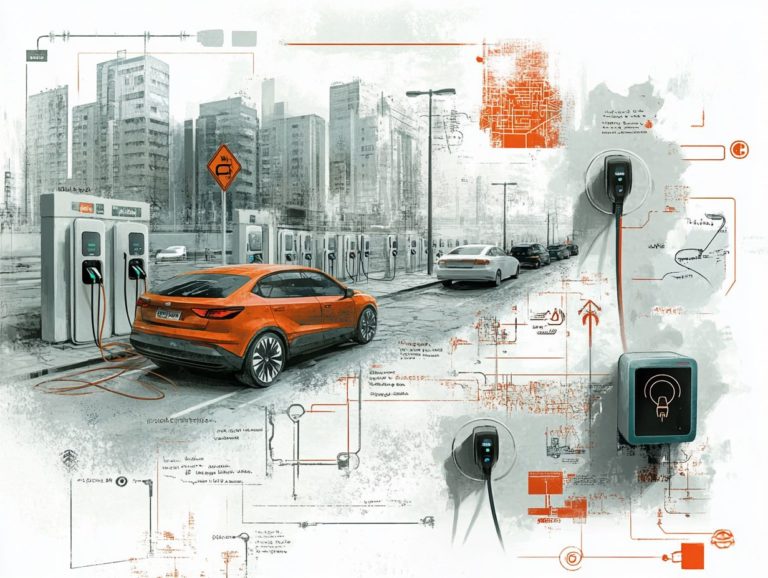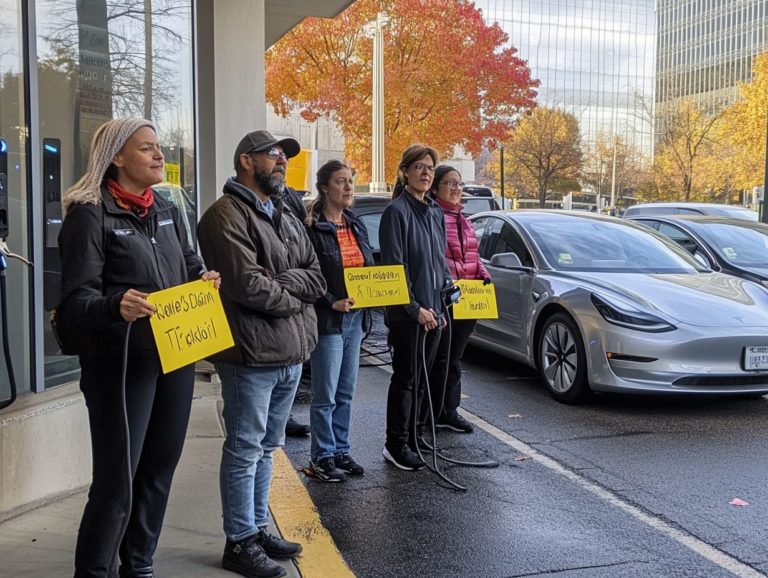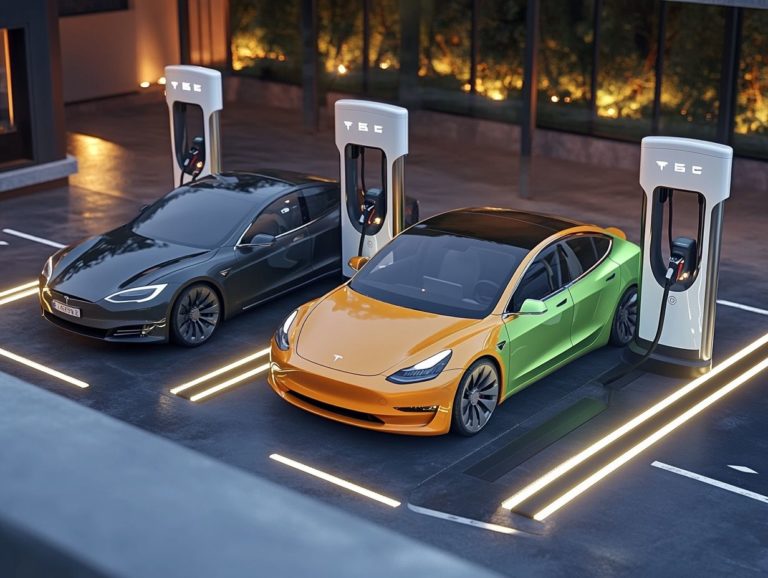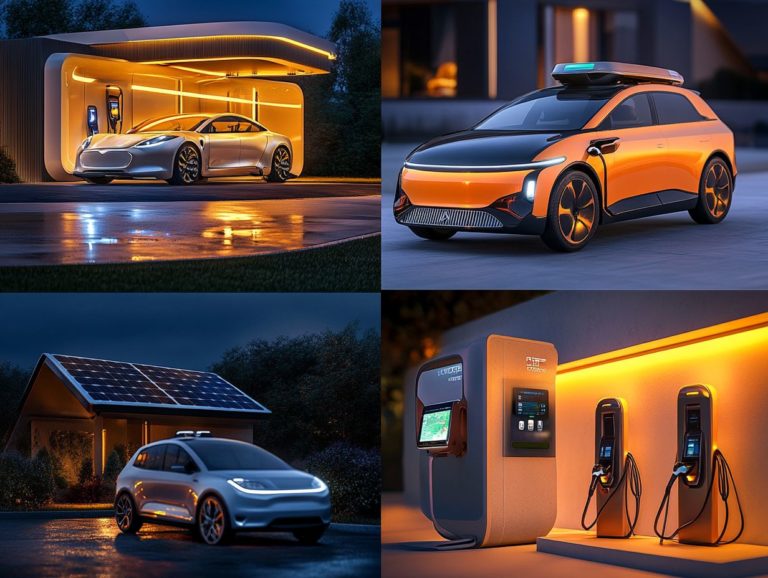what to look for in an ev charging plan
As electric vehicles (EVs) are rising in popularity, selecting the right EV charging plan becomes paramount for both efficiency and cost-effectiveness.
With a variety of options at your disposal, it’s essential to grasp the key factors that will influence your decision, such as charging levels, pricing structures, and overall convenience. Exploring renewable energy options can further enhance your EV experience by aligning your usage with eco-friendly practices.
This article aims to equip you with the insights needed to make a well-informed choice regarding your EV charging plan. Now is the time to choose the best plan for your needs!
Contents
- Key Takeaways:
- Choosing an EV Charging Plan
- Types of EV Charging Plans
- Costs and Fees
- Convenience and Accessibility
- Renewable Energy Options
- Frequently Asked Questions
- What to look for in an EV charging plan?
- Are there different types of EV charging plans?
- How can I find out if an EV charging plan is compatible with my EV model?
- What are the benefits of choosing a charging plan with wide network coverage?
- Can I switch to a different charging plan if I am not satisfied with my current one?
- Are there any additional features or services I should consider when choosing an EV charging plan?
Key Takeaways:
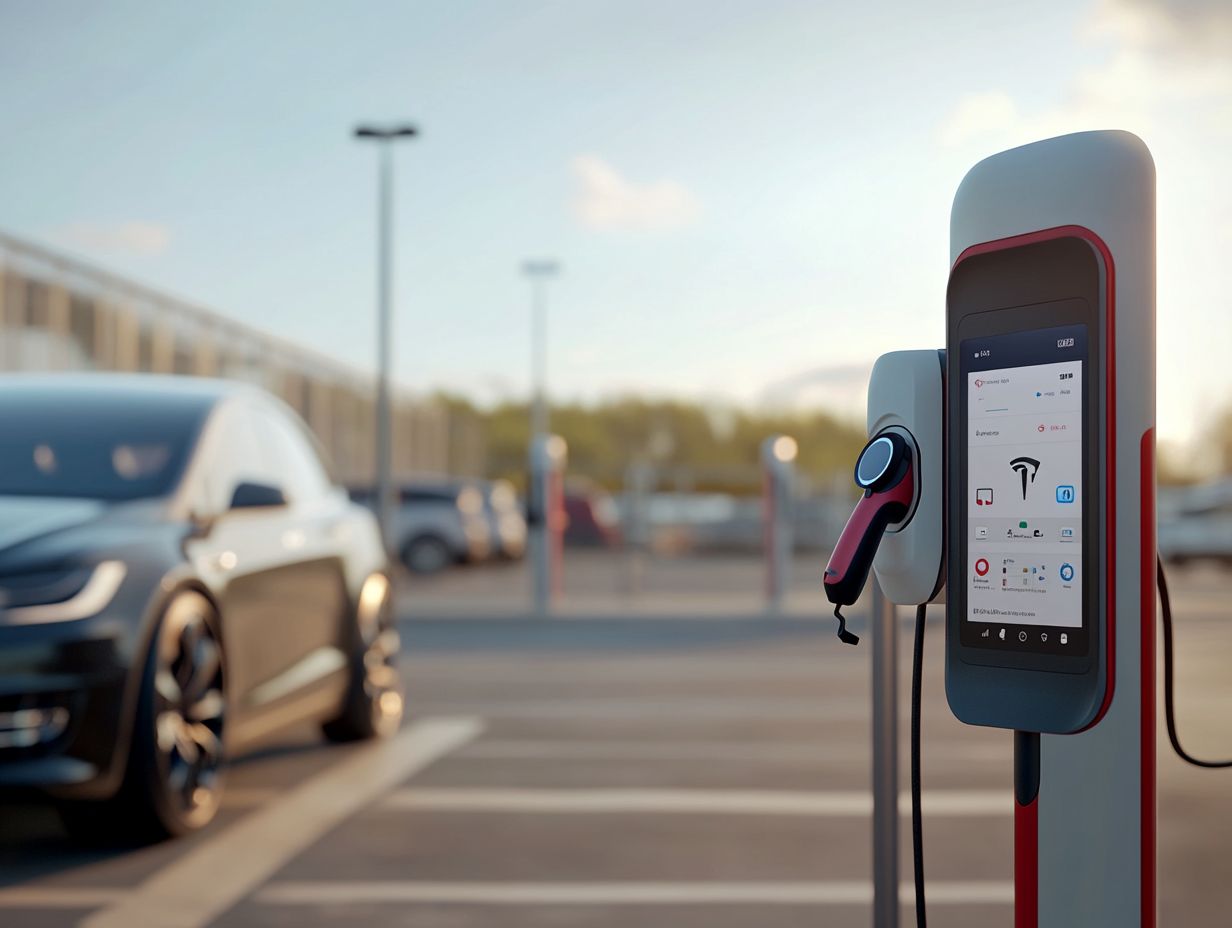
Consider factors such as charging speed, costs, and convenience when choosing an EV charging plan. Understand the types of charging plans available, including Level 1, Level 2, and DC Fast Charging, to find the best fit for your needs.
Be aware of pricing structures and fees associated with different charging plans to make an informed decision for your budget.
Choosing an EV Charging Plan
When selecting an EV charging plan, you will engage in a comprehensive process that requires careful consideration of multiple factors. You must assess EV infrastructure, charging needs, site selection, and possible funding mechanisms to ensure the project’s viability and success. Additionally, understanding what to look for in an EV contract is crucial for making informed decisions.
This approach tackles immediate charging patterns and operational requirements while aligning with your long-term objectives, including grid enhancements, energy efficiency, and compliance with environmental regulations.
Factors to Consider
When you re crafting an effective EV charging plan, it s crucial to consider the role of utility companies, the project scope, and the suitability of installation sites. This should be done while ensuring compliance with regulatory requirements and conducting an environmental review.
These elements are important in shaping the logistics and efficiency of your charging network. Utility coalitions can offer invaluable insights into grid capacity, which refers to the amount of electricity that can be delivered, and energy demand, significantly helping in your strategic planning.
Clarifying the project scope will keep all stakeholders in sync regarding timelines and budget constraints. Selecting the right installation locations is essential not just for accessibility but also for minimizing environmental impact, necessitating a thorough review process.
Adhering to local and federal regulations not only garners community support but also boosts the likelihood of your project s success. Each step in this planning process is vital for effective deployment.
Types of EV Charging Plans
You ll find an array of EV charging plans at your disposal, ranging from Level 1 chargers to Level 2 chargers and DC fast chargers. Each type boasts its own distinct charging capacity and functionality, tailored to meet diverse charging needs and contexts.
These plans are often developed in partnership with various project collaborators, ensuring a solution that aligns perfectly with your requirements.
Level 1, Level 2, and DC Fast Charging
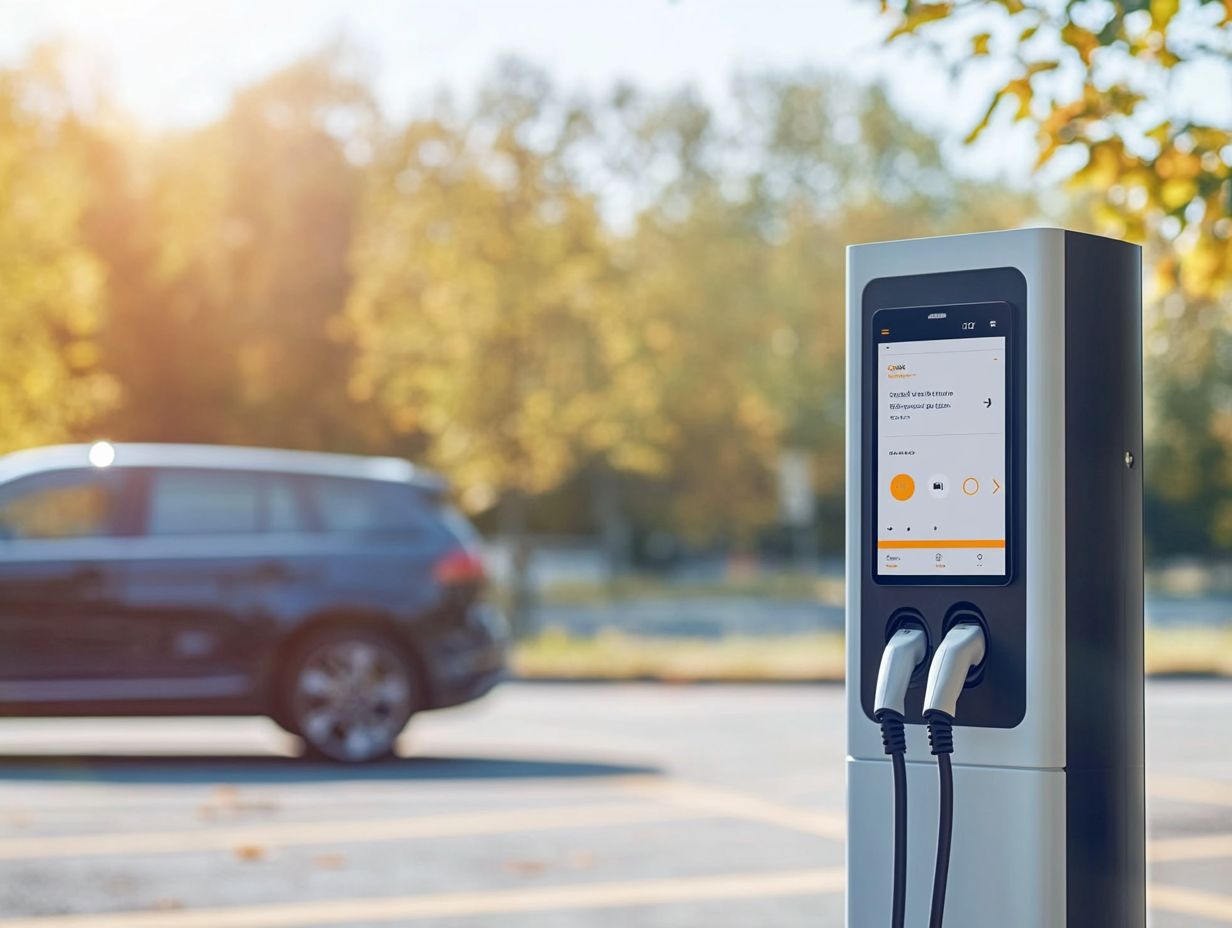
Level 1 chargers offer basic electrical charging, perfect for home use, while Level 2 chargers bring faster charging capabilities to the table. Then there are DC fast chargers, which provide rapid charging solutions ideal for public stations. Each type employs smart charging and energy storage solutions to optimize efficiency.
When you compare these three chargers, the differences in speed become strikingly clear. Level 1 chargers typically operate at 120 volts, giving you about 4 to 5 miles of range per hour ideal for overnight charging at home.
On the other hand, Level 2 chargers work at 240 volts and can deliver anywhere from 10 to 60 miles of range per hour, making them perfect for both residential setups and commercial establishments where time is of the essence.
If you re in a hurry, DC fast chargers can restore about 80% of battery capacity in roughly 30 minutes. They cater to users on the go, making long-distance travel a breeze with minimal downtime.
Installation requirements vary as well; Level 1 chargers usually need only a standard outlet and minimal investment. In contrast, Level 2 and DC fast chargers require more robust electrical systems and may necessitate professional installation. With these variations in mind, you can choose the charger that best fits your lifestyle and charging habits.
Ready to charge ahead? Explore your EV charging options now!
Costs and Fees
Understanding the costs and fees related to EV charging plans is vital for effective budget management. This means considering factors like maintenance expenses, pricing structures, and funding mechanisms that can reduce costs and streamline project timelines.
Understanding Pricing Structures
Pricing structures for EV charging include various costs tied to federal funding, load management, and utility customer needs. All these factors influence the overall charging capacity of the infrastructure.
These elements also create an environment where you can choose from flat fees, subscription models, or time-based rates. Each option has its own benefits and challenges, which can affect consumer behavior and utilization rates.
Utility companies play a crucial role; their infrastructure and pricing incentives can make EV charging more appealing or create barriers. Federal funding significantly shapes these pricing models, paving the way for equitable and accessible charging networks that balance user needs with environmental goals.
Convenience and Accessibility
Convenience and accessibility in EV charging are essential. Careful planning is needed to ensure that charging stations meet accessibility guidelines and adhere to ADA compliance. Community planners must also consider the importance of enhancing charging station availability.
Availability of Charging Stations
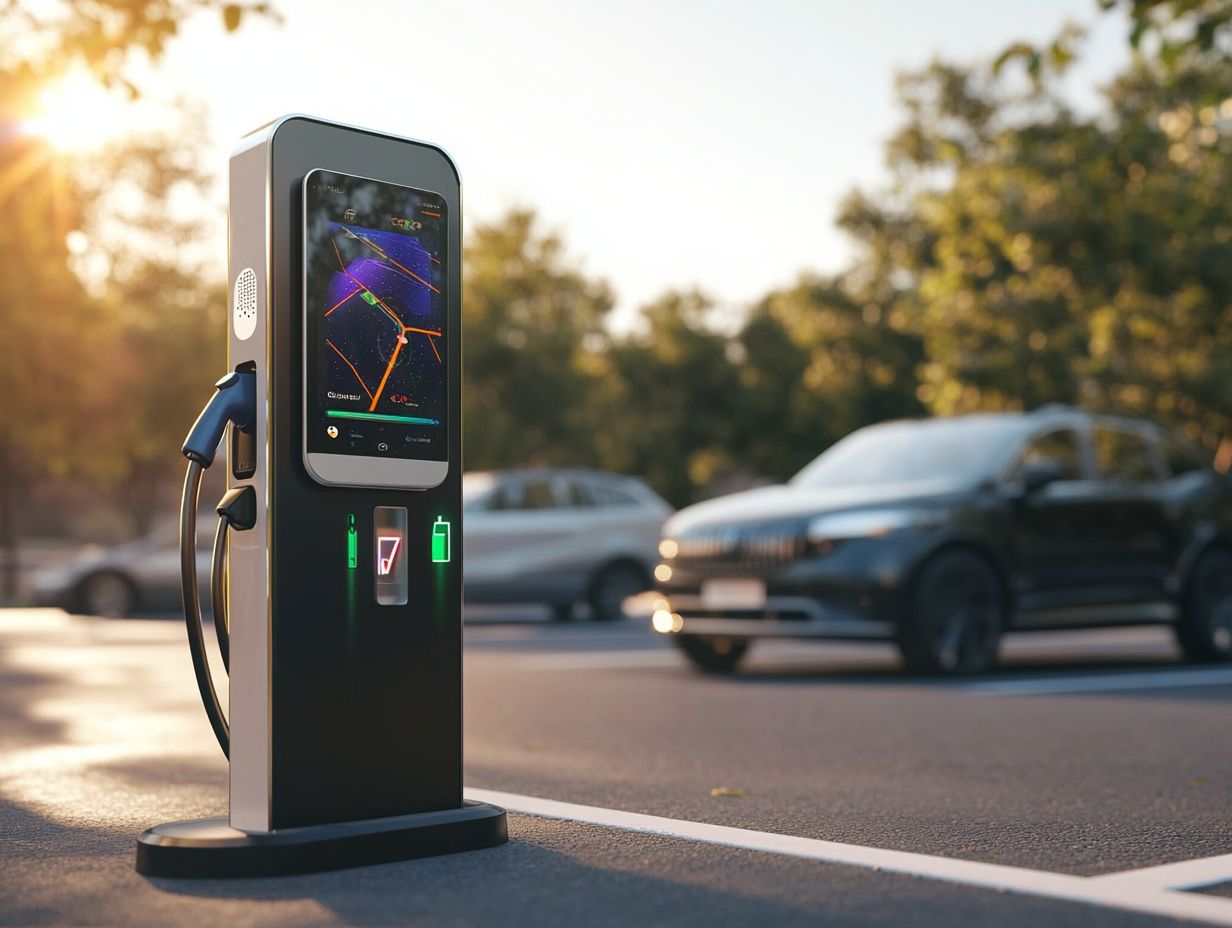
The availability of charging stations is crucial for the success of EV infrastructure. This requires innovative solutions that account for community planning and the unique needs of tribal lands, all while respecting environmental laws.
This factor greatly influences electric vehicle adoption rates. Consumers are far more likely to invest in EVs when they have easy access to charging options.
Act now to ensure your community has the charging stations it needs! Foster partnerships between electric vehicle companies and local planners to strategically locate charging sites in high-traffic areas. Understanding environmental regulations will help identify optimal locations for charging stations.
When these aspects are thoughtfully addressed, the user experience improves, boosting confidence in electric vehicles as a viable transportation option.
Renewable Energy Options
Exploring renewable energy for EV charging can lead to a more sustainable future. By leveraging green energy plans, you can tap into renewable power sources and advanced battery technology.
Incorporating off-grid power solutions can further elevate your energy efficiency. This approach enhances your commitment to the environment and positions you at the forefront of the evolving energy landscape.
Green Energy Plans for EV Charging
Green energy plans for EV charging are designed to harness renewable power and energy storage solutions, creating a sustainable charging ecosystem. These plans align with your charging habits and promote collaboration among project partners.
These initiatives champion the use of solar, wind, and other renewable resources while advocating for energy management systems that optimize energy flow.
By integrating smart technologies, you gain access to real-time data and incentives that enhance your charging experience. Project partners are vital in this endeavor, developing necessary infrastructure, providing financial backing, and ensuring adherence to regulations.
This collective effort results in a more efficient and eco-friendly charging network, significantly reducing greenhouse gas emissions and moving towards a greener future.
Frequently Asked Questions
What to look for in an EV charging plan?
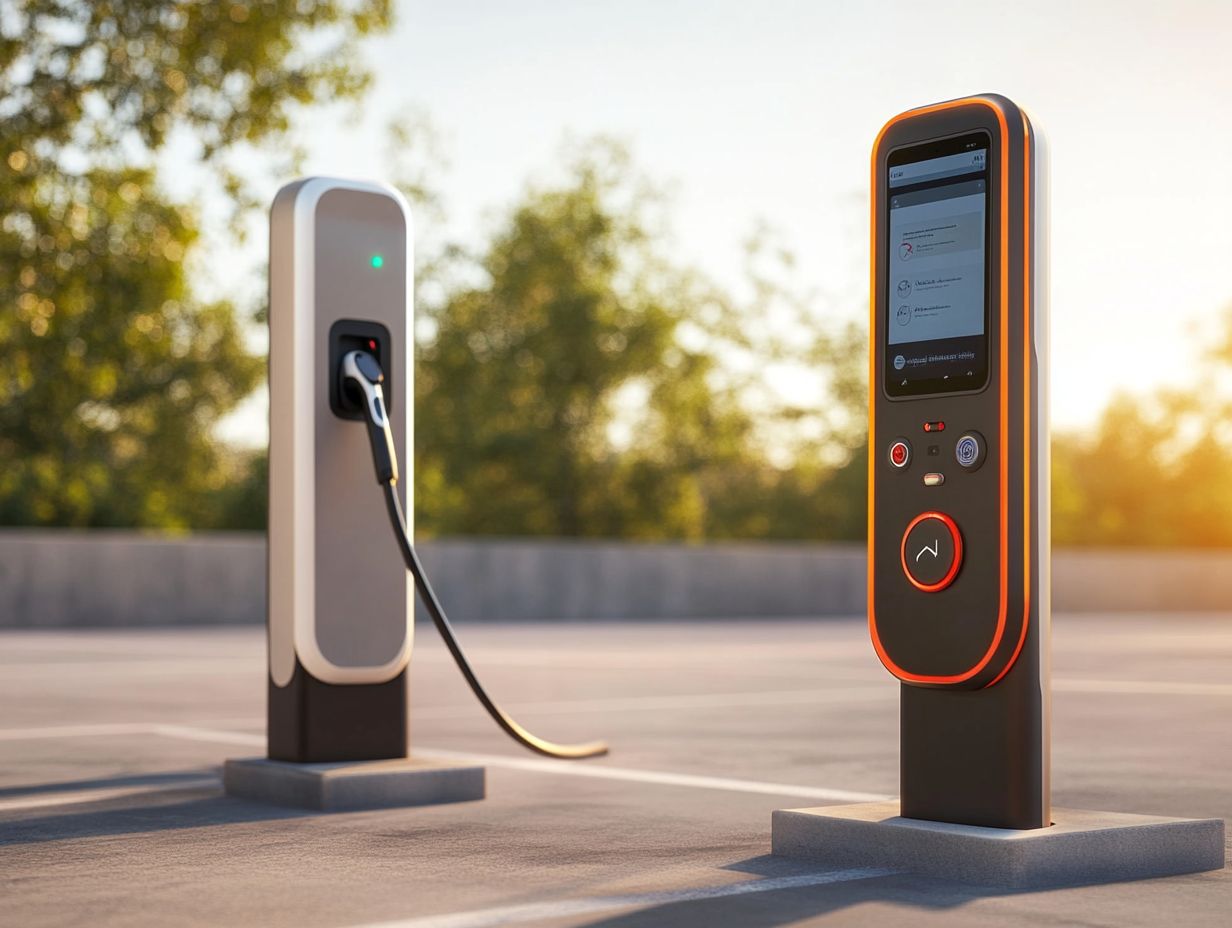
When choosing an EV charging plan, look for factors that suit your needs. These include:
- Accessibility to charging stations
- Rates and pricing structure
- Compatibility with your EV model
- Charging speed and efficiency
- Network coverage and reliability
- Additional features and services
Are there different types of EV charging plans?
Yes, different types of EV charging plans are available. Some plans let you pay only when you charge your car, while others require a monthly subscription.
There are also plans that offer free charging at specific locations or discounted rates during certain hours.
How can I find out if an EV charging plan is compatible with my EV model?
You can usually find this information on the charging plan provider’s website. Alternatively, contact their customer service or check your EV’s manual for compatibility details.
What are the benefits of choosing a charging plan with wide network coverage?
A charging plan with wide network coverage provides access to charging stations in more locations. This makes long-distance travel more convenient and reduces the chances of encountering a fully occupied charging station.
Can I switch to a different charging plan if I am not satisfied with my current one?
You have the freedom to switch your EV charging plan whenever you like! Just be sure to read the terms and conditions of your current plan to avoid any cancellation fees or penalties.
Are there any additional features or services I should consider when choosing an EV charging plan?
Some EV charging plans offer exciting features like mobile apps for locating and reserving charging stations. You may also find remote monitoring of charging progress and 24/7 customer support to enhance your overall EV charging experience.
Explore the plans that best fit your needs!


